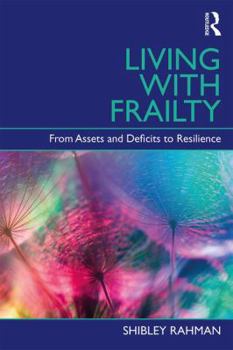Living with Frailty: From Assets and Deficits to Resilience
Select Format
Select Condition 
Book Overview
Increasingly, we question 'what makes us healthy?', as well as 'what makes us ill?'. What does this shift mean for frailty? Almost wholly defined in negative terms, the term 'frail' tends to refer to a group of older people who are at highest risk of adverse outcomes such as falls, infections, disability, admission to hospital or the need for long-term care. This ground-breaking book takes a holistic approach to frailty. It connects the medical literature with the wider social science discourse on ageing, and focuses on promoting wellbeing and the building up of strengths.
Living with Frailty
draws together the latest biomedical evidence and good practice in this emerging area and explores ideas about assets and resilience, the role of society and the social model of disability in relation to frailty, arguing that insufficient attention is paid to positive action such as developing bone strength, maintaining good nutrition and exercising. Chapters look at:existing models of frailty
person-centred care
assessing frailty and quality of life
how falls, and fear of falls, relate to discussions of frailty
delirium and frailty
the environment and frailty
sarcopenia.
Living with Frailty
is an important introduction and reference for all practitioners, researchers and students with an interest in frailty, wellbeing and social approaches to health.
Forewords by Professors Ken Rockwood, Dalhousie University, and Adam Gordon, Nottingham University.





